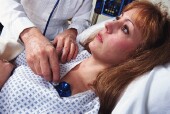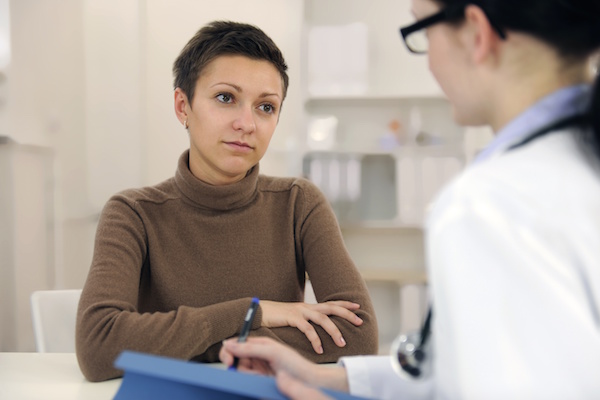
TUESDAY, Feb. 1 (HealthDay News) — Every minute a woman has a heart attack in the United States, yet many don’t reach out for help because they don’t recognize the symptoms, U.S. health officials said Tuesday.
In fact, according to the American Heart Association, only 53 percent said they would call 911 even if they thought they were having a heart attack, which is why the federal government is starting a new campaign called Make the Call, Don’t Miss A Beat.
“We hope to engage and empower women to recognize the seven most common symptoms of a heart attack and call 911 as soon as those symptoms begin to appear,” assistant secretary for health Dr. Howard K. Koh said during a morning news conference.
Each year in the United States about 1.2 million people have heart attacks. Of these, about 515,000 are women, Koh said. But there have been challenges in getting women to recognize the warning signs and symptoms of a heart attack and getting them to call 911, he said.
Koh also noted that women wait longer than men in calling for help, “which leads to poorer outcomes for women.”
“The good news is that if you seek medical attention as soon as heart attack symptoms begin, treatment can save your life and prevent permanent damage to the heart. In fact, treatment works best when given within an hour of the onset of symptoms,” he said.
Speaking at the news conference, Suzanne Haynes, a senior science adviser at the U.S. Office on Women’s Health, noted that a 2010 survey found 53 percent of women said they would not call 911 and 47 percent said they would call a relative or drive themselves to the hospital.
“These percentages were shocking, because they were down from 2006. In 2006, about 80 percent of women said they would call 911,” she said. “Something was going on to discourage women from calling 911, and we need to reverse it.”
Another expert, Dr. Lori Mosca, director of preventive cardiology at New York-Presbyterian Hospital and Columbia University Medical Center in New York City, said that a only minority of women recognize the symptoms of a heart attack and would call 911, even though they would call if they thought another person was having a heart attack.
“We believe this may be related to denial,” she said. “Many women are hoping they can just be wrong if they think they are having a heart attack; some women feel that if they go to the emergency room that their symptoms will be dismissed, and in fact they may be right.”
In addition, women don’t want to bother others and are concerned about being embarrassed and also the cost of calling 911, she added. “But no matter what these barriers are, if they don’t call 911 and get the help they need, they are significantly more likely to suffer an extensive heart attack or die,” Mosca said.
Also speaking at Tuesday’s news conference, Pamela Detrow, a WomenHeart Champion and heart attack survivor, shared her experience.
While out for lunch with a friend, Detrow began to have shortness of breath, cold sweat, dizziness and a racing heart beat.
“A couple of minutes later, these symptoms intensified and they became very profound,” she said. “I returned to the table and fatigue overwhelmed me. I could not lift my head, my arms. Fortunately, my friend knew something was wrong. I thought I was just having some kind of a spell that would pass. She had called 911, and I was taken to a hospital.”
According to Make the Call, Don’t Miss A Beat, the seven symptoms of a heart attack include:
- Chest pain, discomfort, pressure or squeezing
- Shortness of breath
- Nausea
- Lightheadedness or sudden dizziness
- Pain or discomfort in one or both arms, back, shoulder, neck, jaw or upper part of the stomach
- Unusual fatigue
- Breaking out in a cold sweat
If you have any or a combination of these symptoms, call 911 immediately.
More information
For more information on women and heart attack, visit the U.S. National Heart, Lung, and Blood Institute.

